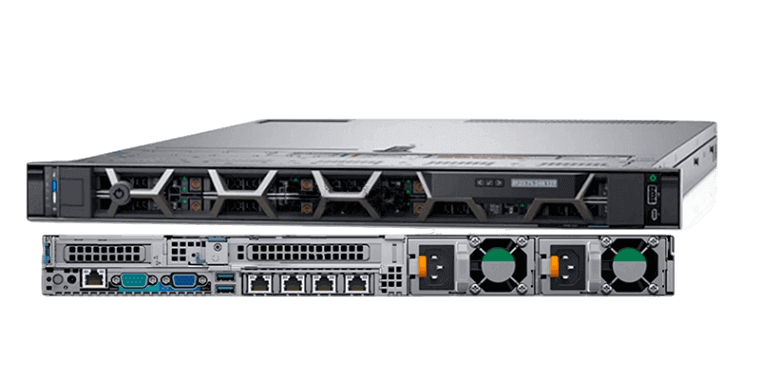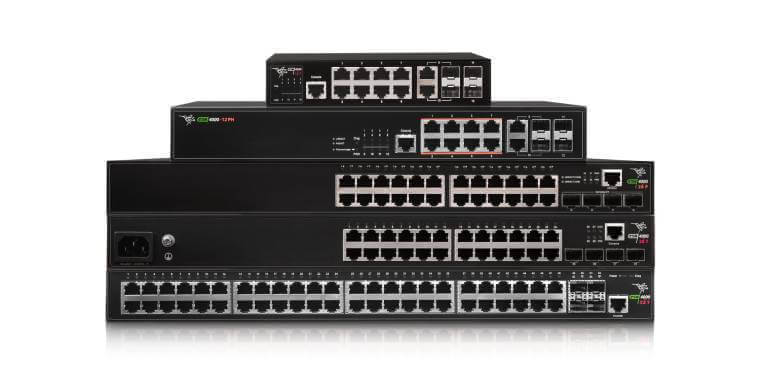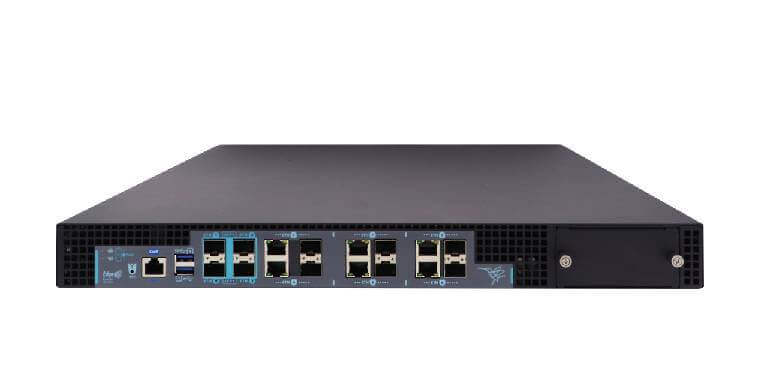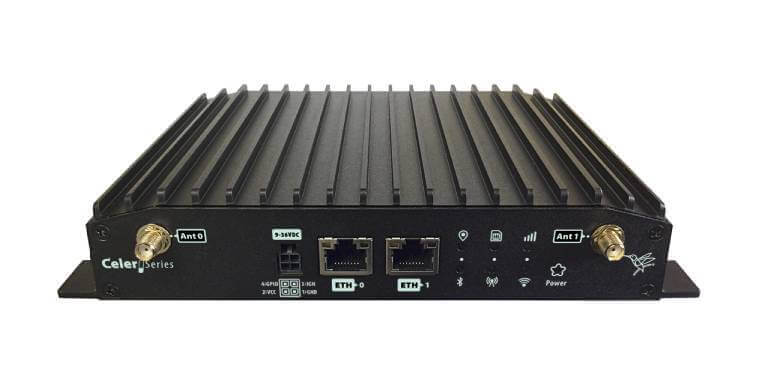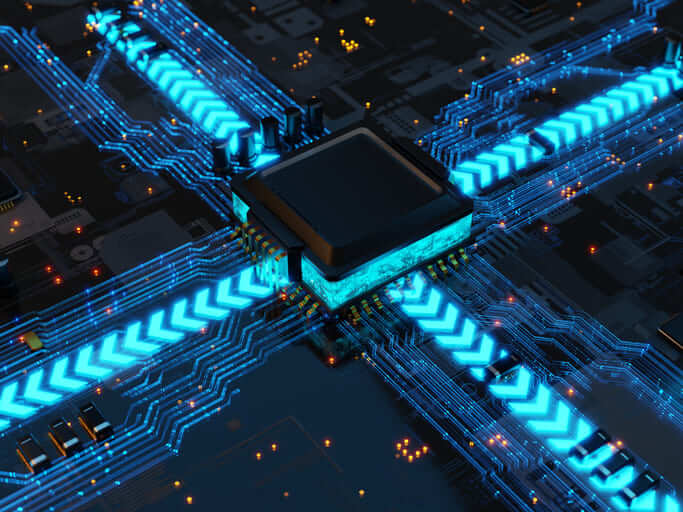SD-Branch: The Challenge of a Seamless Network
A new approach to corporate networking that extends the SD-WAN concept to all components of the network.
An Integrated Experience for Network Management & Operations

SD-Branch provides a unified interface for managing all network components—from WAN to LAN (wired and wireless), as well as security, and traffic analytics from a single point of control:
- A single tool for comprehensive, end-to-end network management
- Shorter learning curve and faster troubleshooting
- Faster, simpler deployment of network devices
- Flexible management: cloud-based or on-premises
- Enables automation through unified control and API integration
The Most Logical Way to Implement and Manage the Network

Digital transformation has made the network a central enabler of business activity. This has created a strong dependency – any disruption in the network can directly impact business continuity. As a result, networks today must be as efficient, available, agile, and secure as possible.
Effective network management is essential to the success of any company or organization. It ensures stable, secure, high-performance connectivity — facilitating real-time decision-making and collaboration. A well-managed network also minimizes the risk of outages and system failures that can harm productivity and lead to financial losses.
It also plays a vital role in protecting sensitive data by preventing vulnerabilities and defending against cyberattacks, thus strengthening the organization’s overall security posture. In an increasingly tech-dependent business environment, efficient network administration is a cornerstone of competitiveness and sustainable growth.
Managing communications infrastructure through a single console is crucial to ensuring consistent and streamlined operations. Centralized management allows IT teams to quickly identify and resolve issues without confusion or miscommunication between different administrators. This not only speeds up incident response, but also improves coordination, shortens downtime, and ensures optimal network performance.
Key Benefits of SD-Branch

Unified Management Console
A single, cross-functional management console for all network elements simplifies operations by reducing the learning curve, lowering staffing requirements, and bringing together teams that traditionally worked in separate domains.

Operational Simplicity
SD-Branch delivers multiple advantages: faster and easier site deployments, quicker and more effective troubleshooting, more integrated lifecycle management of network components, and a single point of contact for vendor interactions.

Optimized Hardware Utilization
By integrating WAN, LAN, SD-WAN intelligence, wireless access (LAN and WAN), and security into a single device, SD-Branch reduces both OPEX and CAPEX. It also increases reliability by eliminating multiple points of failure.

End-to-End Integrated Security
In addition to incorporating firewall, next-generation firewall (NGFW), and cybersecurity features, a unified solution from a single vendor minimizes the risk of security gaps between different devices and simplifies overall management.
Understanding SD-Branch
SD-Branch represents the natural evolution of the traditional network model, adapted to meet the new demands of digital transformation. Unlike legacy architectures built around isolated solutions for each network layer—such as WAN access, fixed LAN, WLAN, SD-WAN intelligence, NGFW security, XDR visibility, and management—SD-Branch offers a unified, software-defined approach.
It seamlessly integrates all network components into a single solution and applies a centralized, cross-functional management layer to enhance agility, resilience, efficiency, automation, and control. As such, it is ideally positioned to meet the challenges of hybrid work, cloud environments, and digital business transformation.
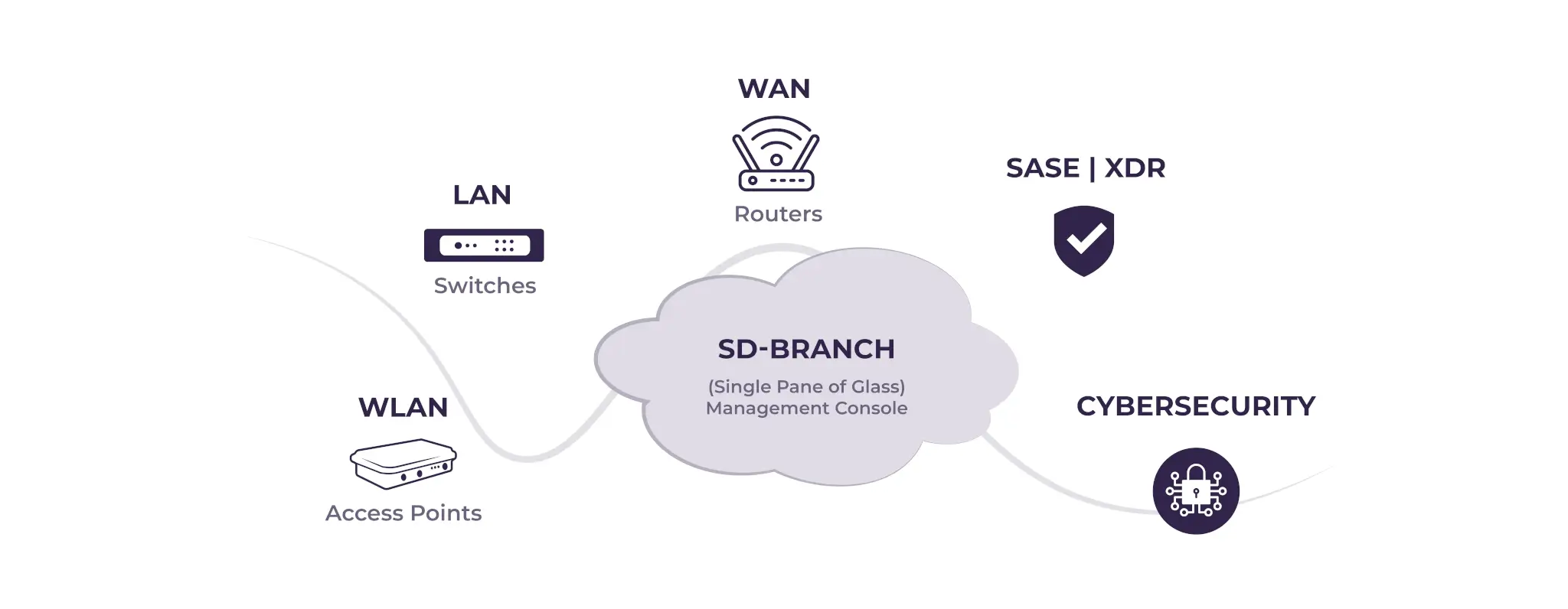
A defining feature of SD-Branch is its ability to manage all network elements through a single console, delivering key benefits:
- Reduced learning curve
- Lower operational costs (OPEX)
- Faster, more agile, and more efficient deployments
- Less need for dedicated human resources
- Integrated, cross-functional IT teams
SD-Branch also contributes to reducing capital expenses (CAPEX) by consolidating multiple network layers into a single device. For example, combining WAN connectivity, SD-WAN intelligence, and security functions into a single appliance helps streamline infrastructure. Fewer components (whether physical or virtual) mean fewer failure points, leading to a more reliable, easily redundant, and highly available network.
Another key benefit of SD-Branch is its ability to improve security. In traditional networks, security is often treated as a separate layer. However, modern threats are increasingly complex and span all levels of the network. A fully integrated security model enables organizations to respond more effectively to breaches, intrusions, cyberattacks, and other threats.
In summary, SD-Branch is the key to modernizing distributed networks. It supports smarter, more secure, and cost-effective branch operations, with the unique advantage of automating, unifying, and protecting network infrastructure. It’s an ideal solution for the demands of digital business, remote workforces, and rapid expansion.
SD-Branch: Teldat Products & Solutions
Context and Evolution
SD-Branch is simply a modern name for a solution Teldat has naturally offered for years. Even before the term “SD-Branch” existed, Teldat’s portfolio already included all the essential building blocks—WAN, SD-WAN, LAN, WLAN, cybersecurity, and XDR — tightly integrated via a unified management console:
The evolution of this solution has been gradual. It began with a specialized focus on WAN access and soon incorporated LAN, WWAN, and WLAN connectivity into the same device. From the outset, a centralized management console was included to handle the full lifecycle: configuration, deployment, operation, monitoring, and updates.
As the solution matured, control over the network became increasingly software driven. The management console evolved to include SD-WAN Controller functions, whilst security and visibility capabilities were added — both at the device level and within the console itself.
At the same time, the Teldat portfolio of remote devices evolved to meet new needs. This included launching a new line of switches that cover not only access but also distribution and core networking.
Throughout this transition, the management console has remained a central, integrating component, providing software-based control of all network elements through a unified data model that simplifies operations and enables scalability.


Management Console
Teldat’s SD-Branch management console, CloudNetManager (CNM), offers a centralized, unified platform for managing all network elements from a single interface. As the backbone of our SD-Branch solution, CNM offers the following functions:
- be.Manager: The operational core for managing the entire device lifecycle. It supports large-scale, Zero Touch Provisioning (ZTP) deployments and handles inventory, configuration synchronization, firmware upgrades, and license management. It also enables basic fault detection, including disconnections, link failures, and alarms.
- be.Analyzer: A real-time network monitoring environment displaying the performance of WAN, SD-WAN, LAN, WLAN, and UTM elements — consolidated in a single view.
- be.SDWAN Base: A mass configuration tool for network devices, using customizable text-based templates and variables for efficient, large-scale deployments.
- be.Safe Pro: A security policy manager used to define and apply cybersecurity rules and profiles.
- be.SDWAN Controller: A comprehensive SD-WAN management module based on a global, hierarchical data model. Unlike be.SDWAN Base, which focuses on device-level configurations, this tool enables network-wide configuration through customizable templates and variables.
- be.Safe XDR: Teldat’s extended detection and response (XDR) solution, offering deep visibility and insights based on data collected from network elements.
- be.SDLAN Controller: A graphical switch configuration tool based on templates.
- be.SDWLAN Mobility: A graphical configuration manager for wireless access points, also based on templates.
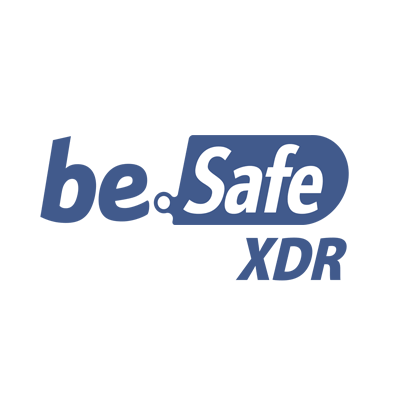
SD-Branch Use Cases

Retail and Distribution
Boost automation while reducing operational costs without compromising security or regulatory compliance.

Financial and Banking Sector
Ensure continuous operations with a strong focus on security to prevent data breaches and intrusions, while meeting audit requirements.

Corporate Headquarters and Remote Offices
Enhance end-user experience and security through user- or group-based authentication and secure access to enterprise resources.
Retail and Distribution
Boost automation while reducing operational costs without compromising security or regulatory compliance.
Challenge
Retail environments often involve a certain level of local complexity, as they rely on a mix of network services — WAN, LAN, WLAN, and Security — to support day-to-day operations such as electronic payments, digital inventory systems, and electronic shelf labels. However, assigning dedicated IT personnel to each location is typically not feasible due to the large number of stores.
These businesses are highly cost-sensitive, operate on long ROI cycles, and prioritize centralized, automated management. At the same time, they have demanding technical requirements due to their reliance on connectivity, including the need for uninterrupted operations and compliance with strict security standards. For example, PCI-DSS regulations for electronic payment systems.
Solution

SD-Branch enables centralized control over all network components and their lifecycle across retail locations, reducing operational costs and improving deployment, as well as troubleshooting.
Capital expenses can also be reduced by consolidating network functions — WAN, LAN, WLAN, and Security — into a single device that meets the needs of smaller retail sites.
SD-WAN further enhances network availability while lowering costs through the use of affordable connectivity. It also allows for traffic segmentation to ensure compliance with regulatory standards.
Why Teldat?
Teldat’s SD-Branch solution is tailor-made for the retail sector, offering a single hardware platform that integrates all essential network services. In addition, its unified management console supports full centralization of operations.
Financial and Banking Sector
Ensure continuous operations with a strong focus on security to prevent data breaches and intrusions, while meeting audit requirements.
Challenge
Financial institutions operate vast branch networks that require constant connectivity, advanced security, and full compliance with regulations such as PSD2 and GDPR. Managing these branches presents significant challenges: complex infrastructure, limited access for on-site maintenance, high operational costs, and increasing vulnerability to cyber threats.
The rise of digital banking further intensifies demands requiring fast access to cloud applications, consistent performance for critical transactions, and the flexibility to respond quickly to evolving regulatory requirements. At the same time, a lack of centralized visibility and control hampers incident response and limits overall business efficiency.
Solution

SD-Branch architecture consolidates core network functions: connectivity (SD-WAN), security (firewall, IPS), LAN (switching), and Wi-Fi, into a single device. All managed from a unified console. In the financial sector, this allows for remote provisioning of branches, high availability via redundant links, and uniform application of security policies across all locations.
It also improves traffic visibility, enables segmentation by role or department, and prioritizes mission-critical services such as online banking and ATM services. Automation reduces the risk of human error and streamlines compliance with industry regulations.
Why Teldat?
Teldat’s SD-Branch solution is uniquely suited to the financial industry. It integrates all key network capabilities into one robust and secure platform with support for multiple WAN connections maximizing uptime. With centralized management, it offers operational efficiency, scalability, and reliable compliance with financial regulations.
Corporate Headquarters and Remote Offices
Enhance end-user experience and security through user- or group-based authentication and secure access to enterprise resources.
Challenge
Organizations with multiple sites and remote offices face the ongoing challenge of maintaining a secure, consistent, and easy-to-manage network across all locations. Differences in local infrastructure, reliance on on-site IT personnel, and difficulties in enforcing uniform network policies, can complicate agile business growth.
At the same time, the rise of hybrid work and the widespread use of cloud-based applications (such as Microsoft 365 and CRM systems) demand high-performance connectivity, traffic visibility, and strong cybersecurity. Without centralized and flexible network management, operating costs can spiral, and the end-user experience is often compromised.
Solution

SD-Branch unifies key network functions — SD-WAN, Wi-Fi, LAN switching, and Security — within a single device, all managed from a central platform. This allows businesses to deploy new sites with minimal local IT involvement through remote provisioning, enforce consistent policies across branches, and ensure seamless access to cloud-based services.
With advanced traffic segmentation and application prioritization, network performance remains optimized. Real-time visibility into traffic and network status enables faster issue detection and resolution. All resulting in enhanced security, reduced costs, and faster business expansion.
Why Teldat?
Teldat’s SD-Branch solution offers an all-in-one platform that combines connectivity, security, and centralized control. It’s ideal for organizations with geographically dispersed offices, enabling scalable growth, lower IT overhead, and a consistent, high-performance network experience.
Read our latest Blog Posts
Understanding the technology behind heat pipes
Heat pipes transfer heat on electronic devices & industrial applications, using the heat transition principle, to transfer to heat sinks within a cooling system. Heat pipes have clear advantages over other heat dissipation methods. What are heat pipes? Heat pipes...
The importance of sequencing power domains in electronics
There is a clear trend in the electronics industry for integration, allowing for more compact and efficient designs. More and more, electronics manufacturers are making their chips smaller, including more components within their chips and extending the feature range....
Improving device reliability and redundancy
In a previous article we looked at how to mathematically calculate the reliability of electronic equipment. That is, the probability of it working correctly for a given period of time. This is best characterised by the Mean Time Between Failure (MTBF), or its...









